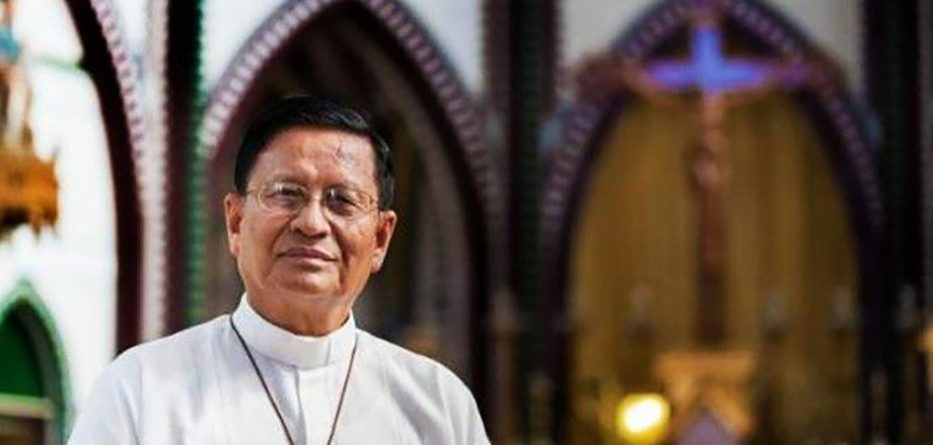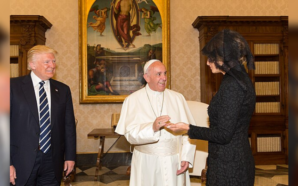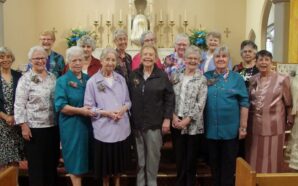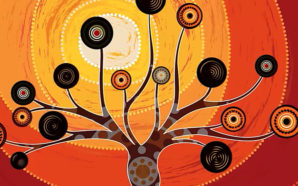Homily for the Fifth Sunday of Ordinary Time
Readings: Job 7:1-4,6-7; 1 Corinthians 9:16-19;22-23; Mark 1:29-39
7 February 2021
Last week we heard that in the synagogue at Capernaum, Jesus’ teaching made a deep impression and he was seen to confront evil and to drive out evil in one possessed. His reputation spread like wildfire throughout Galilee.
Listen at https://soundcloud.com/frank-brennan-6/homily-7221
From the synagogue, he goes straight to the house of Simon’s mother in law together with all four disciples he had called at the beginning of the gospel. Once again he confronts evil and he cures the sick. But this time, this religious activity takes place not in the Temple or in a synagogue, but in an ordinary house. During this time of COVID lockdowns, we too have moved much of our spiritual and religious activity from churches to more familiar places of daily habitation.
Jesus is able to confront evil wherever he goes and wherever he finds it. He is able to extend a helping and healing hand to anyone who seeks it. But once he does, the whole town comes crowding around the door. In the synagogue, Jesus healed by speaking to the one afflicted. Here, Jesus reaches out and touches the one who is sick, the one who would be presumed to be unclean. He then lifts her up and she sets about serving others. The scripture commentator Jose Enrique Aguilar Chiu writes:
‘There is more contained in the verb used to indicate that Jesus “lifted her”. Mark employs the verb “raise up” (egeiro) which is also used in reference to resurrection. Hence, Jesus’ action of liberating someone from evil appears as a resurrection, as if she is brought from death to life. It is also meaningful that the action of the woman, who has just been healed, is indicated through the verb “serve” (diakoneo) – a word used to characterise the Christian vocation, following the example of Jesus as the one who came “to serve”. As the woman (and every disciple) receives the hand of Jesus, she is saved from her illness and moved “to serve” others beginning with those at home.’
Jesus reaches out and touches the one in need. He raises the sick one who then serves him and humanity. And ‘the whole town came crowding around the door’. Sixteeen years ago, I had the good fortune to be in Rome for a Jesuit meeting. On the Sunday, some new saints were being canonised. One of them was Alberto Hurtado who was a Chilean Jesuit lawyer committed to the rights of the poor. He died at 51, the age I was at the time of his canonisation. There was a sense of providence and good chance that I, a 51 year old Jesuit lawyer, was there to witness the canonisation of another 51 year old Jesuit lawyer. I attended the mass in St Peter’s Square recalling Hurtado’s words: ‘If someone has begun to live for God in self denial and love for others, all the forms of misery will come knocking at his door’. An elderly Sister of Mercy who worked for many years with the homeless once made the observation, ‘Sometimes, you need to walk around the beggar at the door.’
Having been besieged by requests for help, Jesus rose long before dawn, leaving the house, going to a lonely place to pray. Hurtado once said, ‘I am often like a rock that is beaten on all sides by the towering waves. There is no way out but up. For an hour a day, I let the waves thrash against the rock; I do not look toward the horizon, I only look up to God.’ ‘God is the only possible escape from my concerns, my only refuge.’ Hurtado was described as ‘a fire that kindles other fires’, a theme taken up in the General Congregation of the Jesuits held in Rome 2008.
In Mark’s gospel, Jesus relishes the opportunity to get away to a lonely place to pray. When the disciples came to Jesus declaring, ‘everyone is looking for you’, he did not accompany them back to the house but insisted that they accompany him immediately on a journey to the neighbouring country towns. Once again, Mark gives us no content of Jesus’ preaching. He simply states that Jesus ‘went all through Galilee, preaching in their synagogues and casting out devils.’ Jesus does not set up institutions. He does not keep coming back for after sales service. He is the itinerant preacher, the peripatetic healer.
During the week, we saw a model of a preacher and healer when Cardinal Charles Bo, the Archbishop of Yangon and President of the Federation of Asian Bishops’ Conferences, issued a pastoral letter in the midst of a coup in Myanmar, with the nation’s problems crowded around his door.
He wrote not as a politician but as a spiritual leader, writing ‘with love towards all, seeking a durable solution, praying for an end forever to the periodic darkness that envelops our dear nation’. First he addressed the people of Myanmar pleading that they ‘stay calm, never fall victim to violence. We have shed enough blood. Let not any more blood be shed in this land.’ Next he addressed the Army: ‘Allegations of voting irregularities could have been solved by dialogue, in presence of neutral observers. A great opportunity was lost….How will you gain the trust of our people? They will trust only when words are matched by sincere actions.’ Then he addressed the elected leaders: ‘Truth will prevail. God is the ultimate arbiter of truth. But God waits….This incident takes place due to lack of dialogue and communication and lack of acceptance of one another. Please listen to others.’
Having then addressed the international community about the need for foreigners to understand well Myanmar’s history and political economy, he urged everyone: ‘Engaging the actors in reconciliation is the only path….Let us solve all disputes through dialogue. Peace is possible. Peace is the only way. Democracy is the only light to that path.’
Cardinal Bo’s message may not be heeded. But we join him with prayers and hope. Unlike Jesus, none of us is assured the capacity to drive out evil and put right the misery at our door. For each of us, the words of Job in today’s first reading have their place and their resonance: ‘Is not man’s life on earth nothing more than pressed service, his time no better than hired drudgery…Remember that my life is but a breath’.
The events in Myanmar this past week confirm just how dastardly and hopeless was the storming of the US Capitol on 6 January – the mob’s actions being a beacon to the anti-democratic forces in our world, against the backdrop of a building which has long been a beacon of democracy in our world. If Trump supporters felt justified in taking the law and election results into their own hands, how much more immune to criticism and pressure are those like the Myanmar military who have the power and will to storm their Capitol.
Even when we feel powerless to put right the misery at our door and to heal the ills of our body politic, we are still called to act rightly respecting the dignity of all, espousing the ideals, maintaining hope, and praying for the coming of the kingdom. When Pope Francis visited Myanmar in November 2017, many commentators were critical of him and Aung San Suu Kyi because he (obviously acting on local advice) would not mention the Rohingya refugees by name while in Myanmar. Francis waited until he met face to face with the Rohingya refugees in Bangladesh, calling them by name. I was in Myanmar a few weeks later. Cardinal Bo told me that he was the one who told the pope that it would be unwise to mention the Rohingya by name while in Myanmar. It’s in the midst of these difficult crises that Paul’s words to the Corinthians make some sense: ‘For the weak I made myself weak. I made myself all things to all people in order to save some at any cost’. Let’s trust, pray for, and hope in Cardinal Charles Bo and Aung San Suu Kyi in the days ahead.
Fr Frank Brennan SJ is the Rector of Newman College, Melbourne, the Distinguished Fellow of the P M Glynn Institute, Australian Catholic University, and the former CEO of Catholic Social Services Australia (CSSA).








